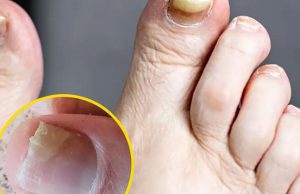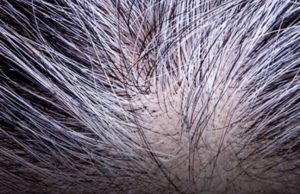
Growing chin hair can be a stressful experience for women. Beauty standards tell us we should maintain smooth, hairless, silky blemish-free skin, especially on our faces. Hair popping up in ‘unusual’ places may make us feel self-conscious or insecure about our appearance. The appearance of chin hair can also raise questions and concerns.
In this article, we will explore the causes of chin hair in women and what it may signify, shedding light on this often misunderstood aspect of female health.
The Causes of Chin Hair in Women
Hormonal Imbalances:
Hormonal Imbalances is one of the primary reasons women develop chin hair. Hormones play a crucial part in regulating hair growth. Androgens, often referred to as male hormones, such as testosterone, can become elevated in women, leading to an increase in facial hair. Conditions like polycystic ovary syndrome (PCOS) and adrenal gland disorders can disrupt hormonal balance, resulting in excess hair growth, including on the chin.
Aging:
As women get older, the levels of estrogen, the primary female hormone, tend to decrease. This hormonal shift can lead to an increase in androgenic activity, promoting the growth of facial hair, including chin hair. The process of aging naturally influences hair growth patterns, and some women may notice chin hair becoming more pronounced as they get older.
Genetics:
Genetic factors can contribute to the development of chin hair in women. If your family has a history of excessive facial hair, you may be more predisposed to experiencing the same.
Medications:
Certain medications can have effects on hormonal balance, potentially leading to chin hair growth. Some medications, such as corticosteroids, can stimulate hair growth in unusual areas, while others may disrupt hormone regulation.
Polycystic Ovary Syndrome (PCOS):
PCOS, a common hormonal disorder that affects women of reproductive age, can lead to irregular periods, ovarian cysts, and increased androgen levels. One of the visible signs of PCOS can be the growth of unwanted facial hair, including on the chin.
Idiopathic Hirsutism:
In some cases, women may experience chin hair growth without an identifiable underlying cause. This condition is known as idiopathic hirsutism. Although it may not be associated with any specific medical condition, it can still be distressing for those who experience it.
What Does Chin Hair in Women Mean?

The presence of chin hair in women does not necessarily have a specific meaning or implication for one’s health. Ladies, keep in mind that a certain degree of facial hair is natural for women, and the perception of what is considered “normal” can vary widely among individuals and cultures.
In some cases, however, chin hair growth may be a sign of an underlying health issue, such as PCOS or hormonal imbalances. If you notice a sudden and significant increase in chin hair or other unusual hair growth patterns, it is advisable to consult a healthcare professional. They can help determine if there is an underlying medical condition that needs to be addressed.
Managing Chin Hair
For many women, managing chin hair is a personal choice. There are various methods available for hair removal, including shaving, waxing, threading, and laser hair removal. The choice of method depends on individual preferences, comfort, and budget.
It’s essential to approach chin hair removal with care to avoid skin irritation or damage. Consulting with a dermatologist or esthetician can provide guidance on the most suitable hair removal methods and products for your skin type.




















